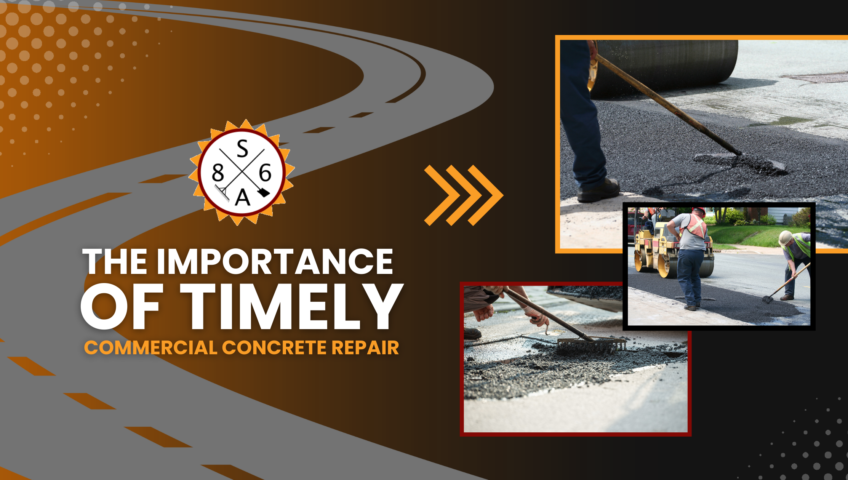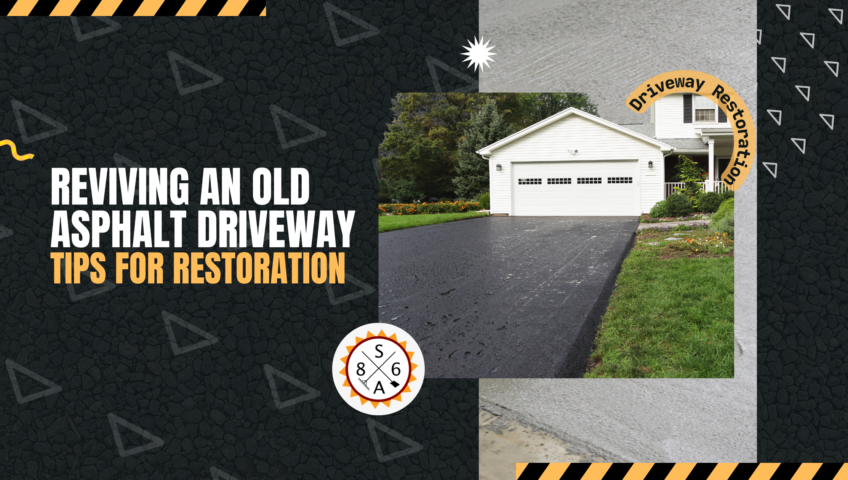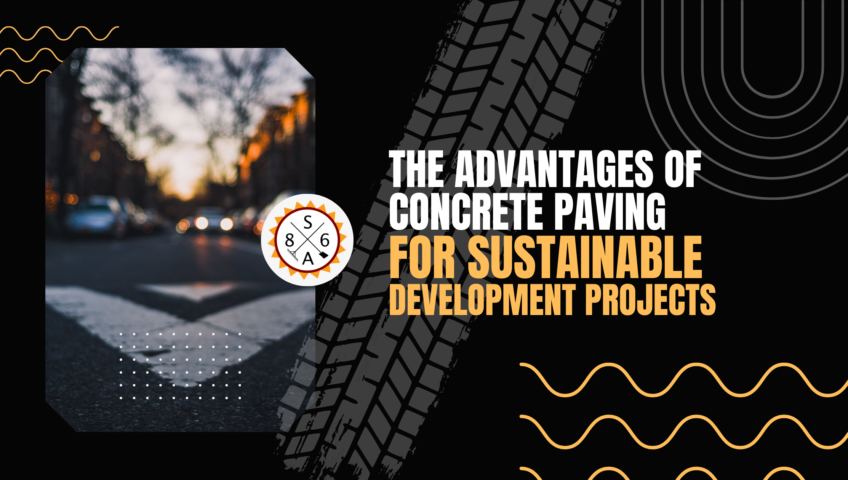
The Importance of Timely Commercial Concrete Repair
Over time, even the most well-laid concrete can succumb to the elements, wear and tear, and unexpected damage. When this happens, commercial concrete repair becomes crucial to maintaining the safety, aesthetics, and functionality of your property. Concrete is strong, but it is not indestructible. Various factors contribute to the deterioration of concrete surfaces, including:
- Weathering: Freeze-thaw cycles can cause cracks and spalling as moisture seeps into the concrete, expands when frozen, and leads to structural weaknesses.
- Traffic Load: Heavy vehicles and constant foot traffic can lead to surface abrasion, causing wear and tear that necessitates repair.
- Chemical Exposure: Industrial environments often expose concrete to chemicals that can erode its surface or weaken its structure.
- Poor Installation: Substandard concrete installation can lead to early degradation, with cracking and sinking being common issues.
Addressing these problems promptly through professional commercial concrete repair services is essential to avoid further deterioration, which could lead to more costly repairs or even complete replacement.
Common Commercial Concrete Issues
Understanding the common issues that affect commercial concrete can help you identify when repairs are necessary.
- Cracking: One of the most common problems in concrete, cracks can range from minor surface lines to deep fissures that threaten the structural integrity of the slab. Cracks can result from shrinkage during curing, excessive loads, or ground movement.
- Spalling: Spalling occurs when the surface layer of concrete peels, flakes, or chips away, often due to freeze-thaw cycles or poor installation. This issue not only affects the appearance of the concrete but can also compromise its strength.
- Discoloration: While not necessarily a structural issue, discoloration can detract from the appearance of your property. It can be caused by improper curing, chemical exposure, or surface wear.
- Scaling: Scaling is the gradual loss of surface mortar due to freeze-thaw damage. It often results in a rough, pitted surface that can be hazardous to foot traffic.
- Uneven Surfaces: Settlement or improper installation can lead to uneven concrete surfaces, which are not only unsightly but also pose safety risks, particularly in high-traffic areas.
- Corrosion of Reinforcement: In concrete structures with steel reinforcement, the corrosion of steel can lead to cracking and spalling. This issue is often caused by water ingress or exposure to corrosive chemicals.
Methods of Commercial Concrete Repair
The approach to repairing concrete depends on the type and extent of the damage. Here are some common methods:
- Crack Injection: For structural cracks, epoxy or polyurethane injection is often used to fill and seal the cracks. This method restores the concrete’s strength and prevents water infiltration.
- Concrete Resurfacing: For surfaces that have suffered from spalling or scaling, resurfacing involves applying a new layer of concrete or a concrete overlay to restore the surface’s appearance and functionality.
- Slab Jacking: When concrete slabs sink or become uneven due to settlement, slab jacking (or mudjacking) can raise and level the concrete by injecting a grout mixture underneath.
- Patching: For small areas of damage, patching with a cementitious material can provide a quick and cost-effective repair. The patch should be properly bonded to the existing concrete to ensure longevity.
- Reinforcement Repair: If the reinforcement within the concrete is corroded, it may be necessary to remove the damaged concrete, clean or replace the steel reinforcement, and then patch the area with new concrete.
- Protective Coatings: Applying a protective coating can prevent further damage from chemical exposure, water ingress, and wear. These coatings are often used in industrial settings where concrete is exposed to harsh conditions.
- Joint and Crack Sealing: Preventative maintenance, such as sealing joints and cracks, can extend the life of concrete by keeping water and debris out. This method is particularly effective for preventing freeze-thaw damage.
Choosing the Right Contractor for Commercial Concrete Repair
Choosing a contractor for commercial concrete repair is a critical decision that can significantly impact the success of your project. Here are some tips to ensure you select the right professional for the job:
- Experience: Look for a contractor with extensive experience in commercial concrete repair. An experienced contractor will have a proven track record of successfully completing projects similar to yours.
- Reputation: Check online reviews and ask for references to gauge the contractor’s reputation. A reputable contractor will have positive feedback from previous clients and a portfolio of completed projects.
- Specialization: Some contractors specialize in specific types of concrete repair, such as structural repairs or resurfacing. Make sure the contractor you choose has expertise in the specific repairs you need.
- Licensing and Insurance: Ensure the contractor is licensed and insured. This protects you from liability in case of accidents or damages during the repair process.
- Quality Materials: The longevity of your repair depends on the quality of materials used. Ask the contractor about the materials they use and make sure they meet industry standards.
- Detailed Proposal: A good contractor will provide a detailed proposal that outlines the scope of work, materials to be used, timeline, and costs. This helps avoid misunderstandings and ensures that both parties are on the same page.
Why Superior Aggregates & Paving?
When it comes to commercial concrete repair, Superior Aggregates & Paving stands out as a leader in the industry. With decades of experience, Superior Aggregates & Paving has built a reputation for delivering high-quality, durable concrete solutions tailored to the unique needs of each client.
Their team of skilled professionals uses the latest techniques and materials to ensure that every repair is done right the first time, minimizing disruption to your business operations. Whether you’re dealing with cracks, spalling, or uneven surfaces, Superior Aggregates & Paving offers comprehensive services that address the root cause of the problem, ensuring long-lasting results.
Superior Aggregates & Paving also emphasizes customer satisfaction, working closely with clients to develop customized repair plans that meet their specific requirements and budget. Their commitment to excellence has made them the go-to choice for businesses across the region looking for reliable, efficient, and effective commercial concrete repair services.
Commercial concrete repair is a vital aspect of property maintenance that should not be overlooked. By addressing issues such as cracks, spalling, and uneven surfaces promptly, you can extend the life of your concrete, enhance the safety and appearance of your property, and avoid costly replacements down the line. For top-notch commercial concrete repair services, consider partnering with Superior Aggregates & Paving, a trusted name in the industry known for their expertise, quality workmanship, and dedication to customer satisfaction.
Over time, even the most well-laid concrete can succumb to the elements, wear and tear, and unexpected damage. When this happens, commercial concrete repair becomes crucial to maintaining the safety, aesthetics, and functionality of your property. Concrete is strong, but it is not indestructible. Various factors contribute to the deterioration of concrete surfaces, including:
- Weathering: Freeze-thaw cycles can cause cracks and spalling as moisture seeps into the concrete, expands when frozen, and leads to structural weaknesses.
- Traffic Load: Heavy vehicles and constant foot traffic can lead to surface abrasion, causing wear and tear that necessitates repair.
- Chemical Exposure: Industrial environments often expose concrete to chemicals that can erode its surface or weaken its structure.
- Poor Installation: Substandard concrete installation can lead to early degradation, with cracking and sinking being common issues.
Addressing these problems promptly through professional commercial concrete repair services is essential to avoid further deterioration, which could lead to more costly repairs or even complete replacement.
Common Commercial Concrete Issues
Understanding the common issues that affect commercial concrete can help you identify when repairs are necessary.
- Cracking: One of the most common problems in concrete, cracks can range from minor surface lines to deep fissures that threaten the structural integrity of the slab. Cracks can result from shrinkage during curing, excessive loads, or ground movement.
- Spalling: Spalling occurs when the surface layer of concrete peels, flakes, or chips away, often due to freeze-thaw cycles or poor installation. This issue not only affects the appearance of the concrete but can also compromise its strength.
- Discoloration: While not necessarily a structural issue, discoloration can detract from the appearance of your property. It can be caused by improper curing, chemical exposure, or surface wear.
- Scaling: Scaling is the gradual loss of surface mortar due to freeze-thaw damage. It often results in a rough, pitted surface that can be hazardous to foot traffic.
- Uneven Surfaces: Settlement or improper installation can lead to uneven concrete surfaces, which are not only unsightly but also pose safety risks, particularly in high-traffic areas.
- Corrosion of Reinforcement: In concrete structures with steel reinforcement, the corrosion of steel can lead to cracking and spalling. This issue is often caused by water ingress or exposure to corrosive chemicals.
Methods of Commercial Concrete Repair
The approach to repairing concrete depends on the type and extent of the damage. Here are some common methods:
- Crack Injection: For structural cracks, epoxy or polyurethane injection is often used to fill and seal the cracks. This method restores the concrete’s strength and prevents water infiltration.
- Concrete Resurfacing: For surfaces that have suffered from spalling or scaling, resurfacing involves applying a new layer of concrete or a concrete overlay to restore the surface’s appearance and functionality.
- Slab Jacking: When concrete slabs sink or become uneven due to settlement, slab jacking (or mudjacking) can raise and level the concrete by injecting a grout mixture underneath.
- Patching: For small areas of damage, patching with a cementitious material can provide a quick and cost-effective repair. The patch should be properly bonded to the existing concrete to ensure longevity.
- Reinforcement Repair: If the reinforcement within the concrete is corroded, it may be necessary to remove the damaged concrete, clean or replace the steel reinforcement, and then patch the area with new concrete.
- Protective Coatings: Applying a protective coating can prevent further damage from chemical exposure, water ingress, and wear. These coatings are often used in industrial settings where concrete is exposed to harsh conditions.
- Joint and Crack Sealing: Preventative maintenance, such as sealing joints and cracks, can extend the life of concrete by keeping water and debris out. This method is particularly effective for preventing freeze-thaw damage.
Choosing the Right Contractor for Commercial Concrete Repair
Choosing a contractor for commercial concrete repair is a critical decision that can significantly impact the success of your project. Here are some tips to ensure you select the right professional for the job:
- Experience: Look for a contractor with extensive experience in commercial concrete repair. An experienced contractor will have a proven track record of successfully completing projects similar to yours.
- Reputation: Check online reviews and ask for references to gauge the contractor’s reputation. A reputable contractor will have positive feedback from previous clients and a portfolio of completed projects.
- Specialization: Some contractors specialize in specific types of concrete repair, such as structural repairs or resurfacing. Make sure the contractor you choose has expertise in the specific repairs you need.
- Licensing and Insurance: Ensure the contractor is licensed and insured. This protects you from liability in case of accidents or damages during the repair process.
- Quality Materials: The longevity of your repair depends on the quality of materials used. Ask the contractor about the materials they use and make sure they meet industry standards.
- Detailed Proposal: A good contractor will provide a detailed proposal that outlines the scope of work, materials to be used, timeline, and costs. This helps avoid misunderstandings and ensures that both parties are on the same page.
Why Superior Aggregates & Paving?
When it comes to commercial concrete repair, Superior Aggregates & Paving stands out as a leader in the industry. With decades of experience, Superior Aggregates & Paving has built a reputation for delivering high-quality, durable concrete solutions tailored to the unique needs of each client.
Their team of skilled professionals uses the latest techniques and materials to ensure that every repair is done right the first time, minimizing disruption to your business operations. Whether you’re dealing with cracks, spalling, or uneven surfaces, Superior Aggregates & Paving offers comprehensive services that address the root cause of the problem, ensuring long-lasting results.
Superior Aggregates & Paving also emphasizes customer satisfaction, working closely with clients to develop customized repair plans that meet their specific requirements and budget. Their commitment to excellence has made them the go-to choice for businesses across the region looking for reliable, efficient, and effective commercial concrete repair services.
Commercial concrete repair is a vital aspect of property maintenance that should not be overlooked. By addressing issues such as cracks, spalling, and uneven surfaces promptly, you can extend the life of your concrete, enhance the safety and appearance of your property, and avoid costly replacements down the line. For top-notch commercial concrete repair services, consider partnering with Superior Aggregates & Paving, a trusted name in the industry known for their expertise, quality workmanship, and dedication to customer satisfaction.




